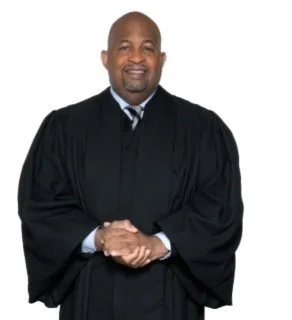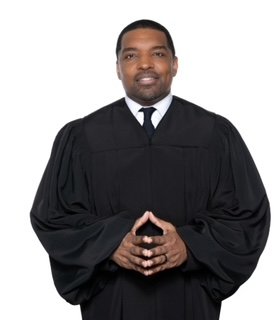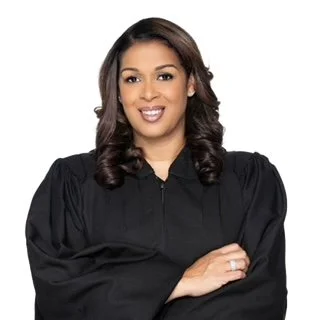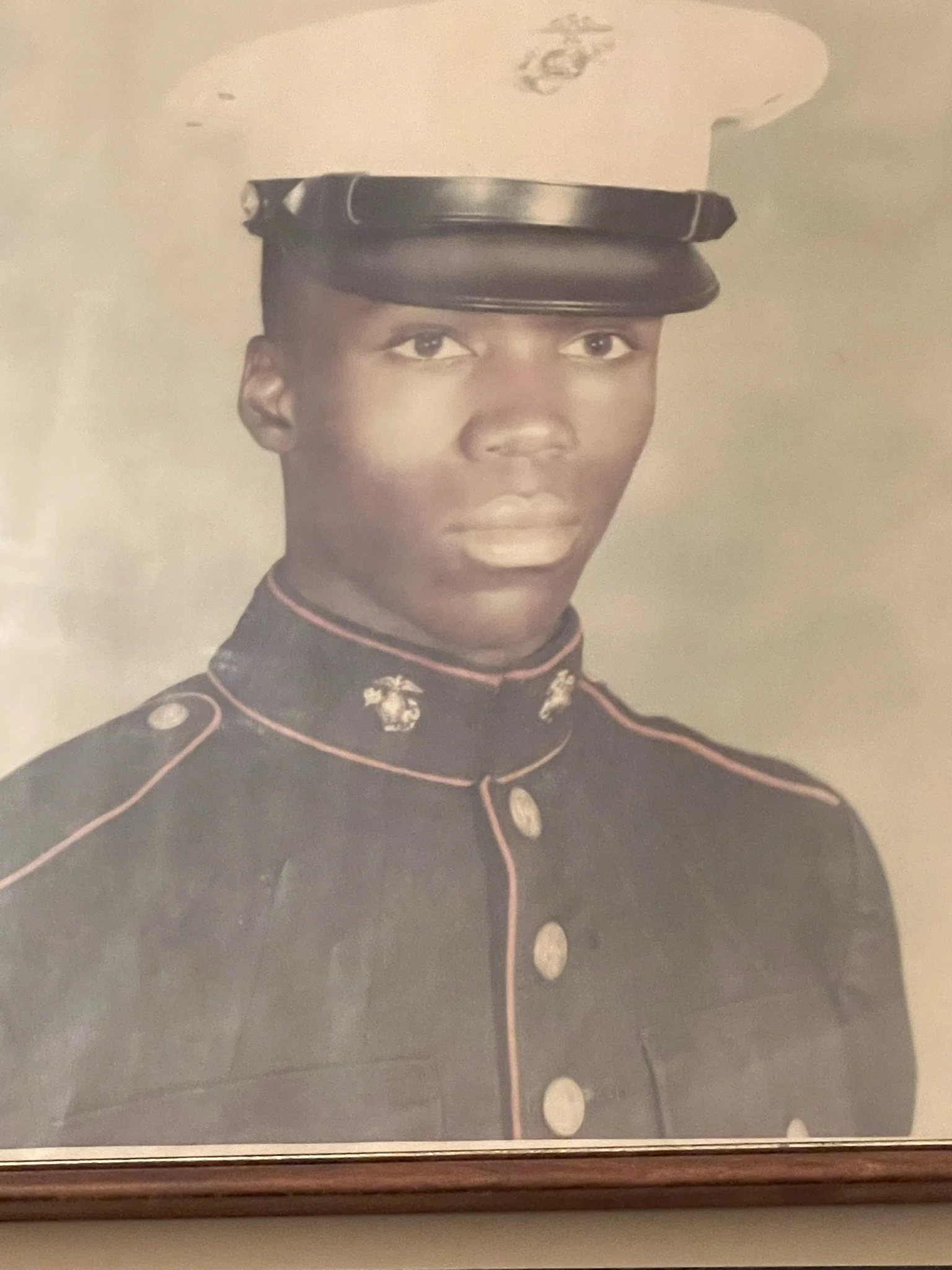Solemnly Swearing to Justice, Not Party Dogma
Judges Darren S. Johnson, Stenise L. Rolle, Donnell W. Turner, Cheri N. Simpkins are all experienced judges on the May 14 ballot.
Courting A World Where Experience Counts More Than Ever
Maybe more than ever, judges seem to be in the media spotlight.
From the never-ending reproductive rights debate, questions of candidates’ eligibility to appear on ballots, and current discussion of the question of presidential immunity from criminal prosecution, whether they’re U.S. Supreme Court Justices to state court judges, arbiters of the U.S. Constitution have full dockets.
And more than ever, the public’s growing perception is that some judges are beholden to partisan politics.
A group of four Prince George’s County-based judges up for re-election recently shared, in a moderated forum, dispute that notion. Beneath their black robes, they say, they are thinking, feeling everyday people. These judges now open up to readers, revealing the complexities of their roles while stating their cases for your vote.
Judge Donnell Turner
Darren S. Johnson, Associate Judge,
Circuit Court for Prince George’s County: Sometimes national politics unnecessarily skews the view of people when it comes to local issues. The judges in our state are selected by all governors, whether they are Republican or Democrat. A judge has no allegiance to either party, only to the citizens of the state, and provide justice to those citizens. You don't just show up on the governor's door. You have to go through an intensive vetting process where the major bar [associations] in the state interview you.
Judge Darren Johnson
After [the bars’ panel members] give their recommendations, you also have an interview before 13 citizens in your county who decide whether you have the temperament, judgment, and the legal skill to serve your jurisdiction. After that, you have an interview with the governor, who makes an assessment, then an appointment. Judges have no allegiance to the governor.
Donnell W. Turner, Associate Judge, Prince George’s County Circuit Court, 7th Judicial Circuit: The requirement that judges run for election invites politicization of the position. As appointed judges, we go through a process where we are non-partisan. We're never asked to state our political position. Our credentials are scrutinized based on our experience and our knowledge of the law.
Governors try to abide by that principle that judges aren't to be partisan. They are to be fair; they are to be impartial, and they are to ensure that justice is meted out in every case. With the elections, I believe there's an expectation of the public that judges [or] anybody [else] who's running in an election should be offering their political views on a number of issues. We can't do that.
When making decisions that should be based on fairness, impartiality, equity, and a sense of what is just and what is right, those kinds of decisions have nothing to do with politics.
Judge Cheri N. Simpkins
Cheri N. Simpkins, Associate Judge, District Court of Maryland, Prince George’s County: The judges for the state of Maryland are bipartisan so it really doesn't, or should have no effect, whether a Republican or a Democratic governor appointed you. I'm a prime example of that. I was appointed to the District Court bench in 2017 by a Republican governor, and then I was elevated to the Circuit Court bench by a Democratic governor.
Governors are looking for judges that will serve their communities to the best of their abilities and uphold the Constitution and the laws — not only the United States Constitution, but the laws of Maryland. Our job is to follow the law. The only allegiance we have is to the Constitution and the laws here within the state of Maryland.
I don't think the public understands that these positions are for the next 15 years. Any lawyer with a law degree and is barred in the state of Maryland — regardless of experience and with a $50 fee — can run against the governor's appointed judge who has been vetted. The governor's appointed judge must be confirmed by the people in that jurisdiction. It’s very important that those who are in these positions are vetted and have experience. Experience matters. We as judges don't make the law as far as how long the terms are set. That’s done by the legislative branch. You have to be worldly; you have to be about your community, you have to be about your family, you have to be about the law in order to do this job, and you just don't want to do the job in a vacuum. You want to be able to do the job with compassion, with heart, and with wisdom. You cannot do this job for that long a period of time with those things lacking.
As judges, we're always studying, we're always reading, and the laws change. There's an ebb and flow, and you have to be able to keep up with the times. You have to be able to keep up with the culture. You have to be rooted in the community so that you can last 15 years so that you understand who is appearing before you. You have to take people where they are in life, understand what your biases or implicit biases may be, how to overcome them, and see people for who they are.
Judge Stenise Rolle
Stenise L. Rolle, Associate Judge, Circuit Court for Prince George’s County, Maryland: Experience gives us an idea, not just as to what [a judge’s] role and the impact of this role is, but also what it isn't. Our allegiance, as all the judges have said, is not to any particular political party but to the people, to the citizens. This role, this position is not about currying favor [or] about gaining favor with one political party over the other. It's about accountability to the public. It's not about getting a political hookup.
This role impacts citizens and has a very heavy responsibility, and so understanding that takes experience. Sometimes individuals want to be in this position or think they want to be in this position without truly understanding the gravity and impact. This job is not one that you get just because you have nothing else to do, or because you're tired of being an attorney. Before you put in for this position, you really need to know what this position requires, mentally, physically, and emotionally. We work long hours. Some people think judges are playing golf all day, and we're not. We deal with very heavy issues. I'm the termination of parental rights judge, so I can make the decision about whether someone loses, not just custody, but parental rights to their children. All of us make those types of decisions, daily. The circuit court hears very serious issues. We hear cases on child custody and divorce. We hear criminal cases from murder and assault to sexual assault. [We hear] civil cases [about] medical malpractice and worker compensation. It's important that you understand the law, and it's important that you have the tools to be able to make fair, impartial decisions. All of us, we have over 20 years of legal experience dealing in vast areas of the law, which gives us the ability to make good decisions and sound decisions. If we don't know the law, we understand where to find the law, and how to apply it. Someone in this position who does not necessarily have that experience or have that skill set would be doing a disservice to our community, which needs leaders on the bench who are fair and knowledgeable and believe in justice. People can feel like they've been respected in court, but also feel as though they really had their day in court and that the person that they sat in front of was someone knowledgeable and who really took their case seriously because they understood the law and its application.
Judge Turner: There's no second chance for decisions to be made, or to be corrected. If you have a judge who doesn't have experience, who makes an improper or inaccurate decision about evidence — keeping certain evidence out that should have been admitted — that very often will impact the outcome of the case. As a result, you very well could have a person who the jury otherwise — had that evidence come in — [could have] found guilty or had the evidence to find that person guilty. [A defendant could be] acquitted because a mistake was made by an inexperienced judge. The citizens of Prince George's County don't get a second chance when that happens.
It's important you have experienced judges who have been in the training so that when they're confronted with evidentiary issues, they're in a position to make the appropriate decision. That breeds confidence in the justice system. If judges are making mistakes because they lack experience or don't know what they're doing, people lose that confidence and will resort to other ways of resolving their disputes.
Judge Simpkins: It's not just our legal experience that matters, but it's our life experience that matters as well. You can't do this job without compassion.
Understanding the needs of the community, what the makeup of the community is, the issues in the community, and applying your life experience together with your legal experience makes for a judge who is compassionate and makes decisions rooted in wisdom. Understanding, again, people want to be heard, and they just want to be respected.
Judge Johnson: The hardest thing about our job is sentencing a person, because you have to weigh the value of someone's life versus redemption for someone else's life. If you do not have the experience or the commitment to community, you're putting our citizens in harm. You're not giving them the justice that they came to court with.
Part of gaining our positions and earning our positions is gathering experience over time. It’s life experiences and experiences in the law that when you ultimately get to that point, you have the necessary tools to make those decisions. If there's a trial where someone unfortunately, passes away, you have volatile parties on each side and you have to be aware, because when you are giving a sentence, you're speaking to the defendant's family and you're speaking to the victim's family. You have to be measured in what you say while also addressing the emotions that everyone has carried in that court room, and that takes experience and knowledge. You cannot be a novice and step into such a weighted position and expect to [be fair, just, and do well].
Judge Rolle: As we grow in our personal and professional lives, we all gain wisdom that wisdom affords us the ability to look at how we may have handled the situation or look at what our understanding of certain things is, and to grow and to learn and make good decisions and better decisions. When you know better, you do better.
Law school teaches you a lot, but that's why [law schools] call it ‘the practice of law,’ because you literally have to get out there and do it to understand what you're doing and be successful at what you're doing. There’s a difference between theory and practice. Experience helps you be a great practitioner. Experience gives you insight as to how you should handle certain situations. In order to serve the people and in order to be accountable to the people, you have to know what you're doing. You have to be secure in the decisions you're making and the people have to be secure in the decisions you're making as well.
Get more detailed biographical information about each of these judges by visiting keepyourjudgespgc.com














